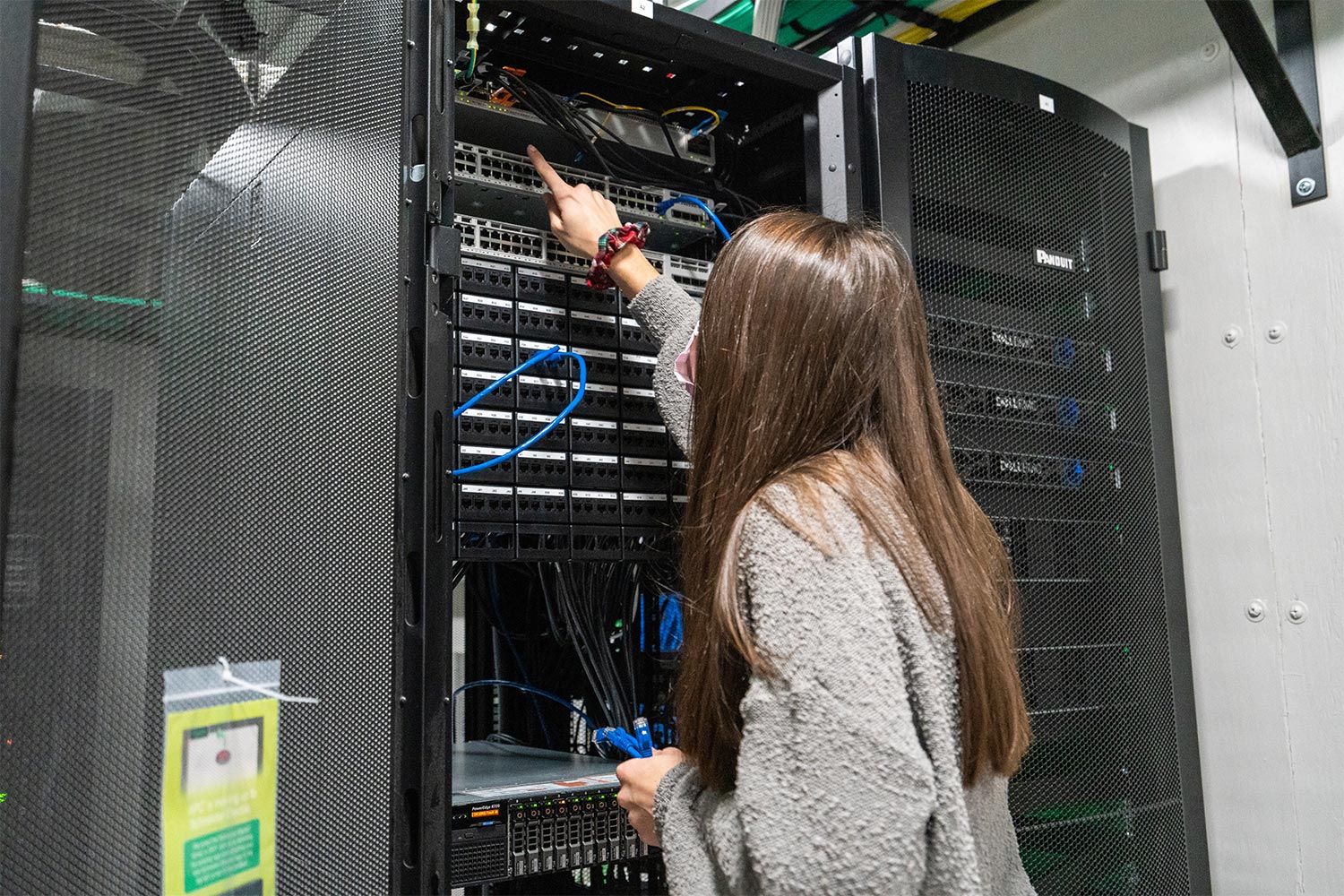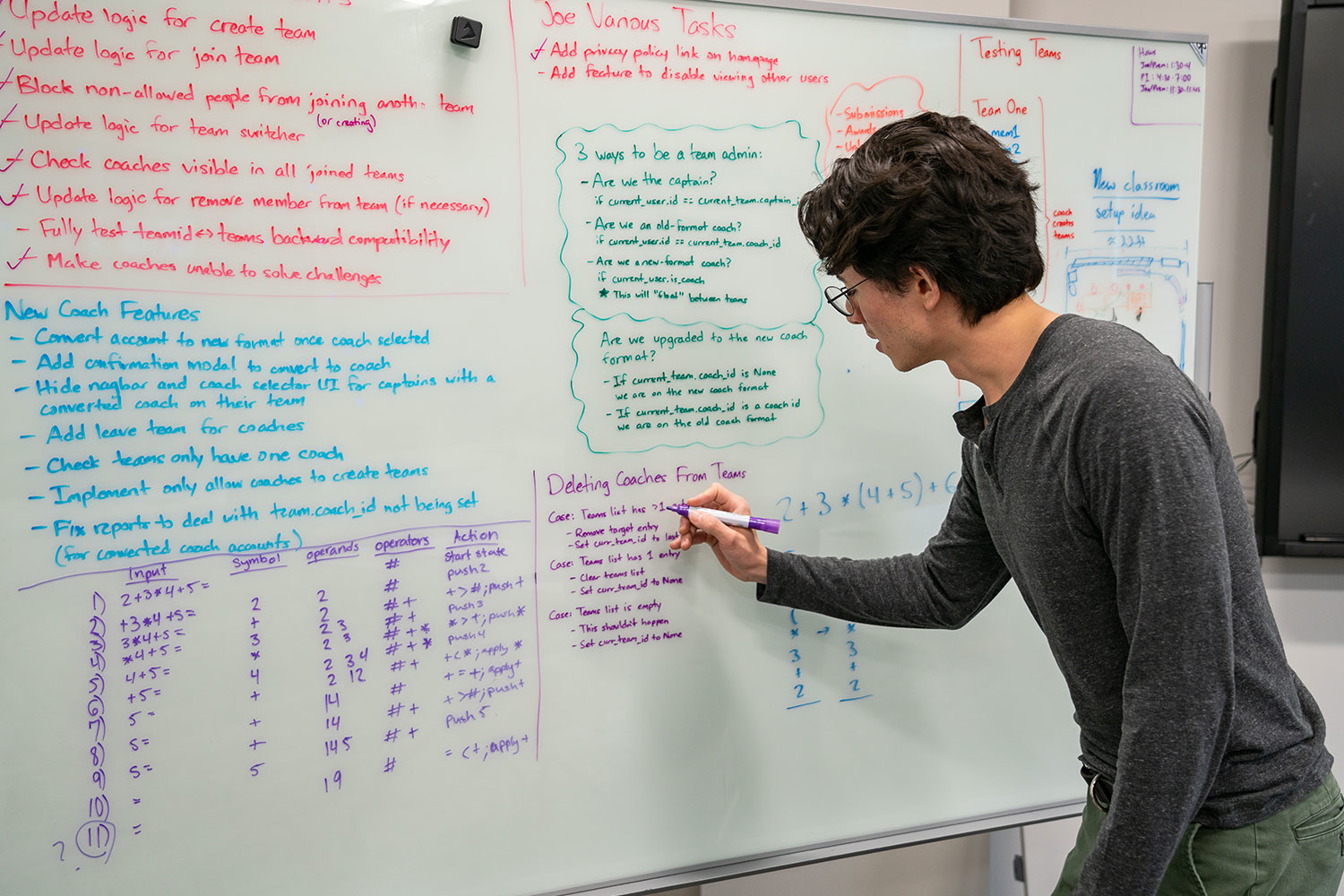Overview
The Radford University M.S. in Data and Information Management combines traditional classroom learning with practical experience, resulting in a curriculum that challenges students to solve real problems for real clients. Class discussions build a theoretical foundation reinforced with hands-on projects enabling students to engage with faculty and industry partners in our advanced and high-tech collaborative workspace.
Why Study Data and Information Management at Radford?
- We blend theory and practice, helping students master the latest technology–including Hadoop, Spark, and Hive–and learn fundamental concepts and principles in the following areas:
- Data architecture; data modeling and design; data storage
- Data integration and interoperability; data quality
- Data governance; data security and privacy
- Data warehousing and business intelligence
- Graduates will be proficient with tools and techniques for managing traditional data as well as the latest technology and best practices to manage and process big data.
- Graduates will also be prepared to meet the challenges of designing, developing, and maintaining high-performance systems with 24/7 availability.
Careers and Internships
The M.S. program educates graduates to the advanced level required to deliver increasingly complex data management solutions while preparing them for successful and rewarding careers.
Students gain the knowledge and experience they need to attain leadership roles at multiple levels from database engineers and administrators to data architects and information managers.
Opportunities for Data and Information Management students at Radford
We offer experiential opportunities through our consortium.
The Applied Research Center (ARC) at Radford University is a consortium that brings together students, faculty, and regional industry partners to explore emerging enterprise technologies. The ARC enables students to apply their skills and knowledge to solve industry problems while developing a strong network of industry contacts. This unique environment gives students the practical, hands-on experience they need to become data architects, information managers, and senior database administrators.
For students:
Not only do students learn emerging technologies in the field with practical and hands-on learning methods, but they also develop a strong network of industry contacts.
For corporate partners:
With rapid prototyping and evaluation of emerging technologies, corporate partners address their business challenges head-on and stay current with the newest developments in big data. They also get the opportunity to recruit and connect to some of the industry’s next top tech talents.
Admission Requirements
All applications require payment of a non-refundable fee of $50. All applicants must submit official transcripts from all colleges and universities attended.
Applicant files are forwarded to the appropriate department for evaluation and a recommendation regarding admission. The final decision on admission rests with the dean of the College of Graduate Studies and Research.
The Data and Information Management Master’s program requires a solid foundation in computer science. Students entering the program must have a strong academic background covering the topics in the courses listed below. The DAIM Admissions Committee with consider conditional admission whereby required experience will be obtained within the first semester. For more information, visit graduate admissions.
Admissions Requirements for the M.S. in Data and Information Management
- Scores of 152 on the quantitative portion and 148 on the verbal portion of the Graduate Record Exam (or scores of 650 and 420, respectively, under the old scoring system).
- A minimum 3.0 GPA overall from an accredited educational institution.
- 3 letters of reference from faculty members who are familiar with your academic performance in major coursework or from colleagues or supervisors who are familiar with your work.
- An undergraduate course in Database Management Systems. Deficiencies in this area may be resolved through additional coursework that must be completed before the start of the program
- Completion of the Radford University graduate application.
- Verification of required immunizations.
- International applicants whose native language is not English must achieve an acceptable score on the TOEFL examination and submit an approved credential report for coursework completed outside the United States. Criteria for satisfactory TOEFL scores are as follows: 87 for the online test; or scores of 227 or 567, respectively, for the computer-based or paper-based tests.
In certain cases, the College of Science and Technology will consider conditional admission, whereby required experience will be obtained within the first semester. For more information, visit graduate admissions.me of the industry’s next top tech talents.
Spend Time in Our ARTIS Lab
In the Applied Research in Technology and Information Science (ARTIS) Lab, an advanced, high-tech collaborative workspace, students work closely with faculty and industry partners to solve real problems. Projects typically involve:
- Rapid prototyping and evaluation of emerging technologies to assess scalability, performance, security, and resilience for enterprise-class systems.
- Practical, hands-on assessment of feasibility and cost-benefit of emerging technology based on business needs.
Tracey's dream job was to become a data scientist within the healthcare field.
"Through Radford and the Data and Information Management program, I have found a way to make a difference in the healthcare field … from behind a computer.”





